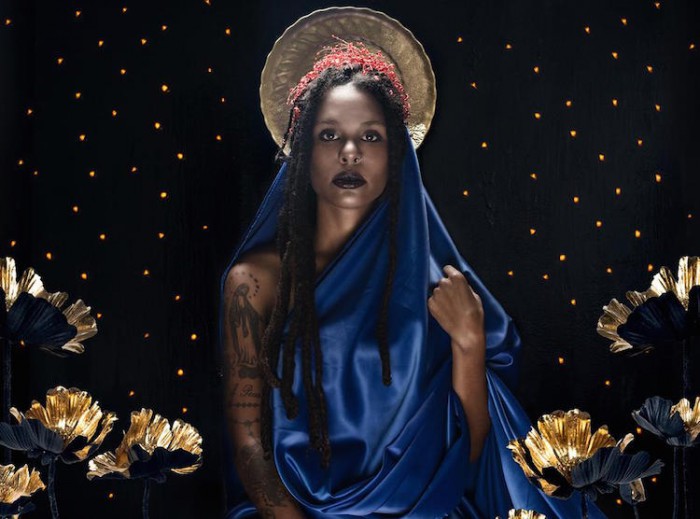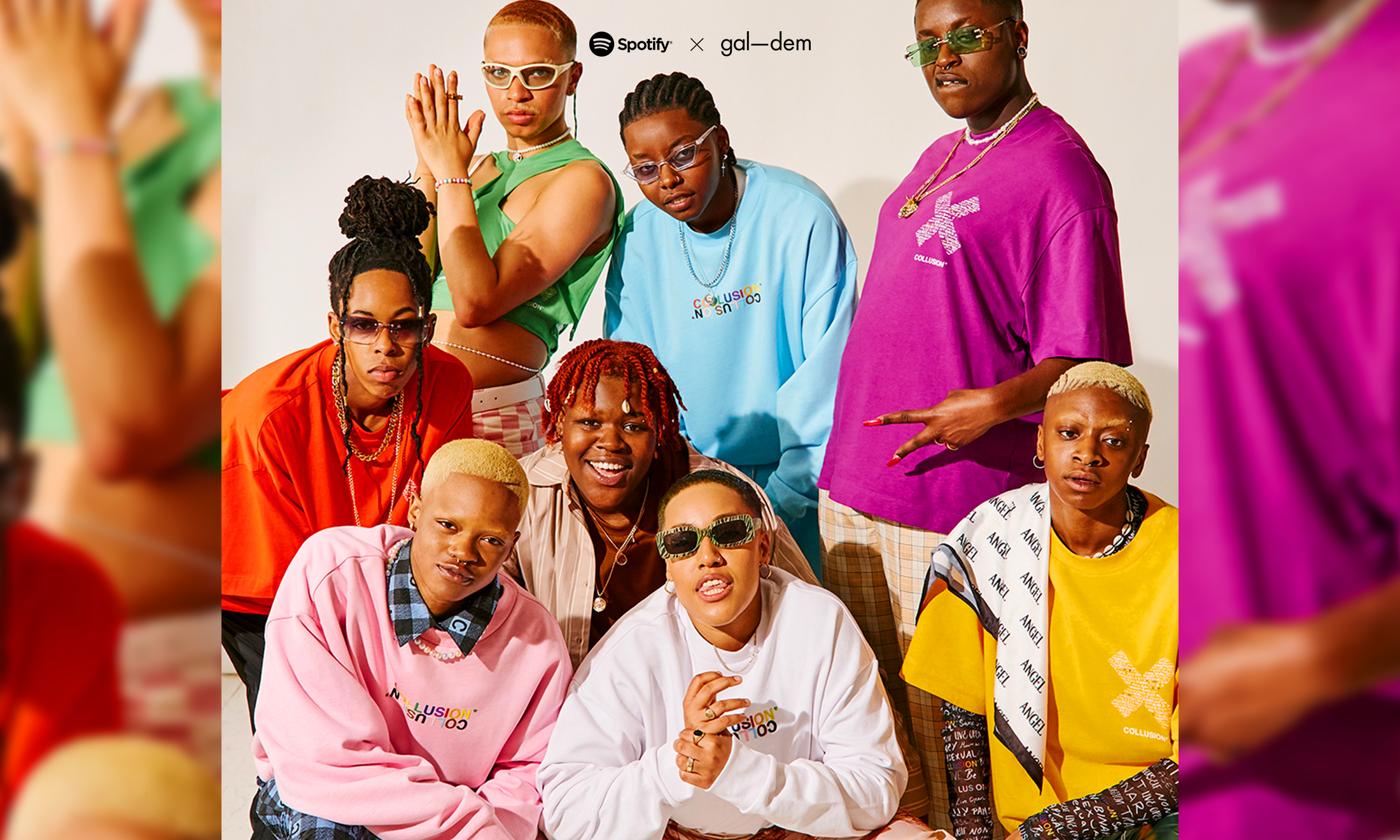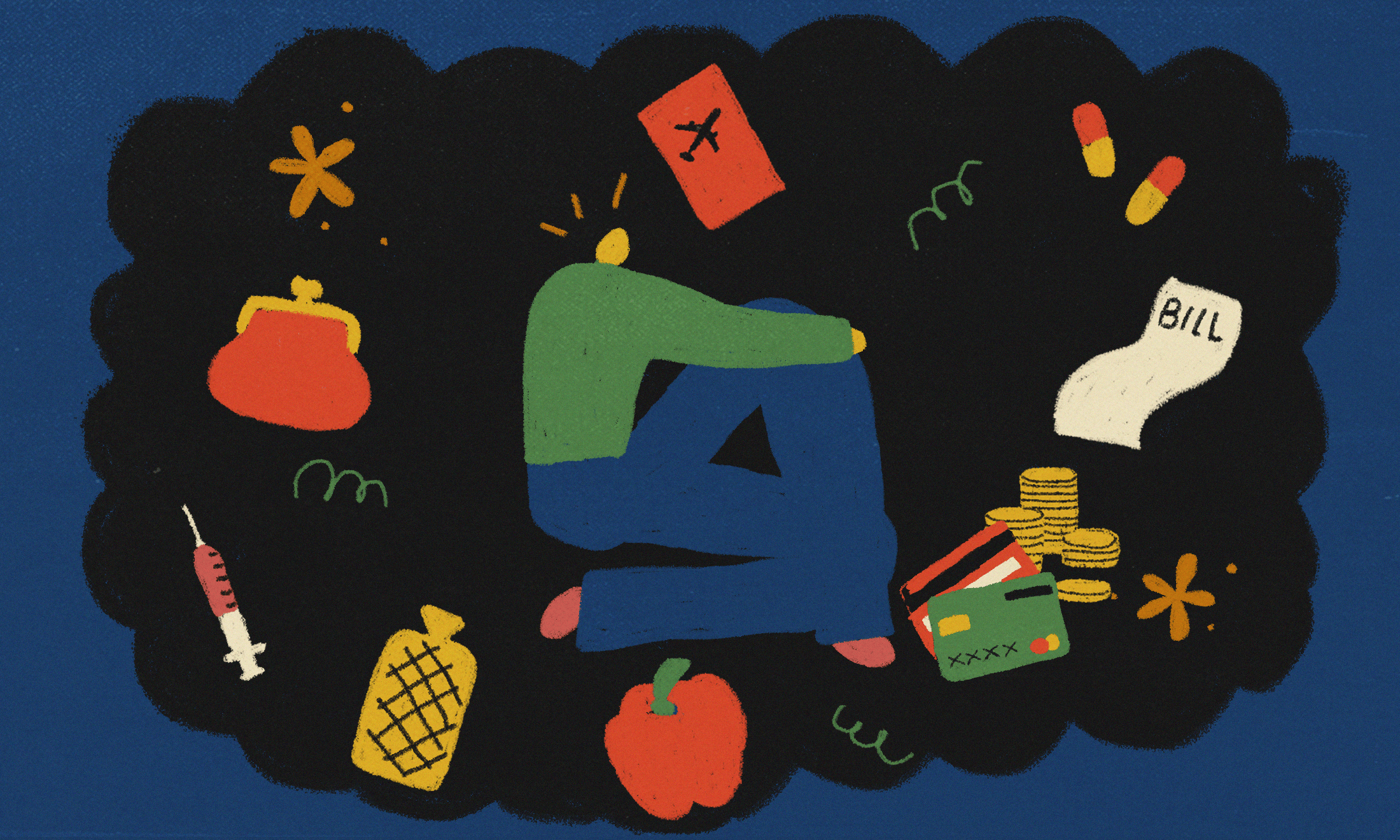
Born Catherine Saint Jude Pretorious, Dope Saint Jude is a rapper, poet, activist and self-professed media innovator, from Cape Town. I spoke with her over Skype about her background and to gain some insight into the role her values and education play in the messages put forth in her music.
gal-dem: Tell me a bit about where you’re from.
Dope Saint Jude: South Africa (SA) has a history of apartheid, which ended about twenty-five years ago. Structurally it’s still the same because during apartheid they had designated white, black and coloured areas. Cape Flats are still a predominantly coloured area and I come from that area. It’s interesting living in Cape Town. It’s a really beautiful city, there’s a lot happening and it’s flourishing in terms of art and business. But there’s a very strong racist undertone because of the way we live.
It’s quite interesting for me because I am a mixed-race person, so in SA I’m considered “coloured”. But I’m a second generation mixed-race person so I still have an identity as a black person in SA. It’s interesting navigating spaces particularly in Cape Town because I think racism is pretty prevalent here as it’s such a developing place. You have the Cape Town CBD which is really beautiful and it has all of these beautiful restaurants and international spots. And then you have people from my area, taking trains and buses into work there, to do service work. It’s difficult but it’s also nice, I wouldn’t choose to be anywhere else.
Your collaboration with Angel-Ho was the first song of yours I heard, and I was like “Yes! Who is this?!” I love the video and how you’re both challenging gender binary with so much energy. How did that collaboration come about?
Angel and I are friends. We met on the party scene in Cape Town. He was DJing and I came to dance next to his DJ booth and we just hit it off. Both Angel and I are queer artists that wanted to do something that challenges the perceptions of gender because we are fluid with our gender identity, so we came up with the track ‘Keep In Touch’. We came up with the phrase “keep in touch” because we weren’t very cool or popular in high school and something happened to a friend of ours, someone came up to a friend of mine who wasn’t cool in high school like “Hey! How are you?!” being all nice. Actually, when back in high school, she was so shady to him! So she was like, “Keep in touch”, we thought that’s such a cool thing to say to someone, so that’s how we came up with the phrase.
We also wanted to make reference to how difficult it is as queer artists, and also brown queer artists to kind of have a voice in Cape Town to get booked for shows, because you’re not seen as the “cool” people, you know? A lot of places in the city are white-owned, so it was very difficult for us to get booked, so that’s why we came up with the track and we made it so extraordinary because we wanted to make a statement that even if you don’t want us performing in your clubs, or in your spaces, we’re gonna make it happen for ourselves.
So how do people from your city respond to your music, seeing a lot of it is heavily politically charged?
I’ve had a pretty positive response to my music from the Cape Flats, I’m definitely creating a voice for my disenfranchised community and I’m able to articulate it well. I’m able to access platforms that a lot of people from the Cape Flats aren’t able to access, and the reason I’m able to access this is because of the kind of education I was afforded.
I went to schools that were previously “white schools”. This is a very big benefit if you’re a person of colour in SA, and if by some miracle you manage to go to a “white” school, your access is better: you have better resources because you go to schools where you have access to the internet, so already your knowledge is broadened. My school had a library and a computer room. I was able to access Maya Angelou and Toni Morrison whereas other people from the Cape Flats had limited resources. So I think because of the type of education I’ve had, it afforded me a certain type of voice. Even my accent is different. I have what is considered a “white” accent here in SA, so people take me a lot more seriously. When I put my music out, I’m able to access platforms internationally – like yours.
So I think people from my community are pretty happy to have someone relenting beyond our community. I feel like a very big responsibility to keep my music a true representation of where I come from, because I’ve been afforded with this privilege of access.
Since you take on this role of activism through your art, do you ever get weighed down by the responsibility to be that voice in your community?
Nobody has ever asked me that question, but I think about this a lot. I feel like being a queer, brown woman in SA is just who I am, so I can’t run away from it. I do feel a responsibility but I also don’t feel like I am obligated to constantly make commentary about my queerness or about race. That’s not just who I am, I’m not bound by that. It’s an element of who I am, it’s shaped the “who” I am and I’m glad, I wouldn’t choose to be any other way. So I’m very grateful to be able to contribute to that narrative.
But I also hope that my audience remains open-minded because I have many stories. I think often what we do, particularly to black artists, we want to box them into one type of story so we can feel comfortable with them being boxed. Like this is a conscious artist, this is a queer artist and I hope my audience moves with me as I explore my own narratives because I am complex, and we as brown people are complex and we must make room for that. So if I want to talk about having sex and feeling lustful, or my relationship with God, I hope my audience can feel that and open my mind to that because that’s part of who I am. Not only for my benefit, but for people’s perceptions of themselves.
I am not limited to just a struggle, I am many things. I’m not just struggling, I’m celebrating too – I like partying, drinking and having fun with my friends, that’s part of me too.
In the track ‘Real Talk’, there’s a line where you say: “And I’m rapping like I’m coloured but the coloureds call me White/ and the Whiteys call me Black/ And the Blacks call me Light…” I have heard struggle so many times from people who are of mixed heritage, who feel like they can’t identify with their whole heritage all at once. How do your family support your music (as you’re the second generation mixed-race). Who did or do you look up to for support when feeling this conflict?
My mum was born in the 1950s when it was essentially illegal to be mixed-race in SA and she’s mixed-race. It’s been difficult for her because she had to assimilate into the coloured community even though she grew up in a rural black, African community. I share the struggle because all of my cousins are black and here I am, this mixed-race person experiencing privilege just because my skin is a little bit lighter.
It makes me very angry because I love my cousins and there’s no other difference between us. My cousins weren’t afforded the same education as me just because of the colour of their skin, so it makes my family happy that I’m able to tackle these things in my music and that it’s important to me.
How have you felt being known as a female rapper, in a male-dominated industry?
I can’t escape the fact that people want to call me a female rapper and I take on that identity because I am a woman and I am in hip-hop, so it’s important to assert myself as a female rapper. But I also don’t like to limit myself to that. Because I think the archetype of a woman in hip-hop is like a peripheral figure, someone who is there on the sideline, just the featured artist, and I have my own story. I’m on the fence with people labelling me as a female rapper because it’s important that I take it as part of my identity but I also don’t want it to limit me.
How are people around you responding to your brand of feminism?
I think I provide a type of feminism that’s a lot more accessible to people because I am hesitant about the academic rhetoric that’s inaccessible to people like my cousins, because feminism is for all of us. I dislike the inaccessible discourse that can be seen as limited to the elite. People living in the slums can also understand feminism, it shouldn’t be an exclusive club.
With my music I provide a more accessible, fun easier approach that celebrates our complexities as women. In ‘Real Talk’, I say “Your brand of feminism to my world is so outdated/ Please update it for the rappers, for the fly girls for the girls who like to f*ck/ For the sisters, for the mothers”.
There are so many types of women who are feminists and don’t feel like they can call themselves feminists because the idea is so exclusive, academic that is far-removed and doesn’t interact with who they are as a person.
Who are you listening to at the moment?
I’ve been playing a lot of JUNGLEPUSSY recently, I’m a big fan.
Dope Saint Jude’s debut EP is on the way. Follow her page on Facebook to stay in the loop.









